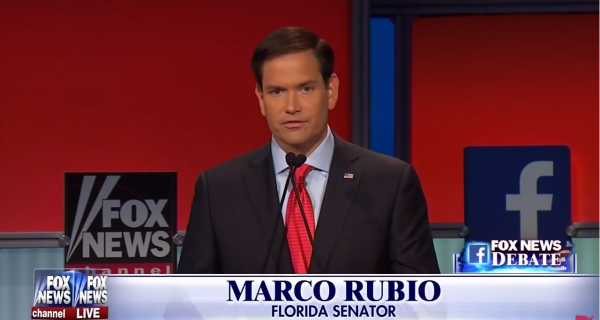
Monday’s New York Daily News is reporting that Democrats are pressuring “a handful of Republican senators” from states where mass shootings have occurred in an effort to further expand their gun control agenda by closing the so-called “gun show loophole.”
The story focuses on efforts to sway Florida Sen. Marco Rubio, in whose state a 19-year-old using a legally-purchased semi-auto rifle stormed Marjory Stoneman Douglas High School Feb. 14 and killed 17 students and adults. The Daily News noted that this alleged loophole “exempts private-party weapon sales from undergoing federal background checks in 31 states, (and) has long been an issue of concern for Democrats in favor of beefed-up gun control.”
The problem with this scenario is not to plug a loophole, which may or may not exist, but to bridge the credibility gap that exists in the newspaper’s narrative. While the newspaper story is likely correct, the effort about which the Daily News is reporting has a flaw, and it’s a big one.
Accused high school killer Nikolas Jacob Cruz didn’t buy his rifle at a gun show without a background check, according to a history of the shooting published by Wikipedia. He bought it at a retail gun shop, and passed a background check in the process. But inconvenient facts like this don’t matter to anti-gunners, because they appear to be all-too-willing to either stretch or simply dance around such facts to push an agenda of public disarmament, At least, that’s how it appears to embattled gun owners.
Writing at WND over the weekend, radio talk host Barbara Simpson made this observation:
“It doesn’t seem to matter whether it is a one-on-one killing or a massacre; the solution in the minds of many Americans is that stricter laws governing who can own what weapon – and under what circumstances – is the answer for prevention.
“The mass shooting at the Thousand Oaks country music bar in California on Nov. 7 ended with 13 dead, including the gunman. Authorities say he killed himself as officers closed in.
“Without missing a beat, civilians interviewed called for more, and stricter, gun laws – and politicians did the same. They all want more of the long arm of the law.
“The problem with that is – it hasn’t, and doesn’t, work.”
Simpson noted something else that has occurred to virtually everyone now involved in the Second Amendment movement.
“I have never understood,” she wrote, “how anyone could have the right to tell someone they don’t have the right to protect themselves and their family. In my view, that would not only be illegal – it would be immoral.”
That observation, say rights activists in Washington State, strikes right at the heart of the gun prohibition effort most recently illustrated by passage of anti-rights Initiative 1639, the sweeping multi-pronged measure approved by just under 60 percent of the people who voted Nov. 6. The initiative is already being challenged in federal court by the Second Amendment Foundation and National Rifle Association.
The answer to Simpson’s quandary is that nobody has the right to tell someone else they don’t have the right to protect themselves or their families. Rights enumerated in the Constitution are not subject to the whims of a popularity vote. That’s what makes them rights, as opposed to regulated privileges.
Anti-gun Democrats and wealthy elitist liberals evidently need a reminder.